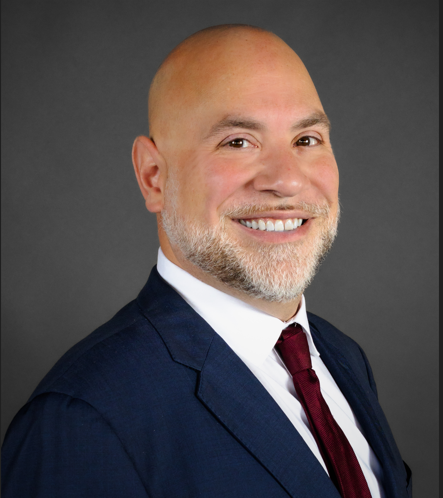Employment & Labor Law
As counsel for many businesses, we guide employers in employment structuring and documentation – with the goal of minimizing claims and litigation. We believe in well-crafted and designed employer/employee relationships that are memorialized in clear and fair employment agreements and other employment-related documents. We advise clients in:
Employee breach of non-competition/non-solicitation agreements, and other restrictive covenants
Drafting and negotiating employment documents, agreements, manuals, employee handbooks, restrictive covenants, stock option agreements, non-disclosure agreements, severance agreements and other similar documents
Wrongful discharge and retaliation
Discrimination
Sexual harassment
Whistleblowers
The Family and Medical Leave Act
The Americans with Disabilities Act
The Uniformed Services Employment and Reemployment Rights Act
Equal Employment Opportunity Commission concerns, and wage-and-hour (Davis-Bacon) matters.
Personnel administration
Compliance with affirmative action requirements and First Source requirements (when applicable) at the bidding stage and with any audits or investigations.
Representation in union employment and labor-related problems
We also counsel clients in connection with decisions related to disciplining and terminating employees. When an employee alleges harassment or discrimination, we guard our clients’ interests. When disputes arise, we team with clients on a strategy that resolves the dispute before litigation ensues. However, we recognize that certain cases are especially difficult to resolve and must therefore be aggressively defended. We have a proven record of success in litigation and arbitration.
American with Disabilities Act (ADA) Compliance and Disputes
Employers often misunderstand their legal obligation to make their premises accessible to individuals with disabilities. Many mistakenly believe that if they have owned or leased their premises since before accessibility laws were enacted, or if they have not made substantial physical changes to their premises during that time, then they have no obligation to make their businesses accessible to individuals with disabilities. Our lawyers are experienced in advising clients on all aspects of the ADA. We also represent clients in suits brought against them for ADA non-compliance.
Appellate Advocacy
The appellate outcome of employment matters is equally important to the outcome of a trial or lower court proceeding. Appeals often have precedent setting significance with impact far beyond a single matter. Success at the appellate level requires different skills than those applied at trial. It is important to understand the appellate bench, and the perfection of the record.
Our lawyers’ analytical, writing, and oral advocacy skills are honed for success on appeal. Our lawyers have served as judicial law clerks to trial and appellate court judges, providing insight into the working of the priorities and decision-making of the bench.
Our Employment Practice Group lawyers work closely with our Appellate Practice Group – teaming together to often parachute into matters handled by separate trial counsel. We are regularly sought in this regard to serve as appellate monitoring counsel during trial. Clients also engage us to write amicus curiae briefs, and to work with other trial counsel to ensure that employment matters are properly postured for appeal.
Constructive Discharge
Plaintiffs often claim an abusive working environment became so intolerable that his or her resignation qualified as a fitting response. Our lawyers understand the recent Supreme Court rulings on these claims and appropriate affirmative defenses.
Collective Bargaining and Unfair Labor Practices
Collective bargaining is the negotiation process between a union and an employer to reach a contractual agreement governing the conditions and terms of employment for union members. Both union and employer have a duty to bargain in good faith. While an employer isn’t required to agree to anything in particular, failing to discuss mandatory bargaining topics, or taking an unreasonable approach to negotiations, might be considered to be unfair labor practice.
Our team handles National Labor Relations Board (NLRB) matters and all other types of collective bargaining. We investigate, while ensuring there is no interference with any NLRB investigation.
Discrimination
Employees may bring a claim against an employer based on discrimination for a variety of reasons. Cases involving age discrimination, gender discrimination, and racial discrimination are probably the most common forms of factual background for these types of suits. We provide employers options for responding to such claims. We explore whether the employee exhibited a pattern of poor performance. To prevent undue expense and minimize the risk of litigation, we closely examine employer procedures for evaluating and documenting employee performance.
E-Discovery
Our Employment and Labor lawyers advise clients in developing pre-litigation policies and procedures. We counsel clients on implementing effective technologies to manage and dispose of data defensibly and consistently with emerging best practices. Our team also advises on preserving documents and data effectively where there is a duty to preserve. We work with clients to explain defensible disposal before a duty to preserve arises. Once a duty to preserve arises, we work hand-in-glove with clients on legal holds and their scope. Our managing partner, John Jablonski, is nationally recognized in this arena. He is the Editor of Arkfield’s Best Practices Guide for Legal Holds, and the former chair of the Defense Research Institute’s E-Discovery Committee.
Employment Practices Liability Insurance
Our team has extensive experience with Employment Practices Liability Insurance (EPLI). We have litigated coverage issues concerning claims or lawsuits filed by employees, former employees and employment candidates regarding employment relationships with an employer. It is not uncommon for these policies to have issues that arise concerning trigger of a claim, scope of coverage, selection of counsel and consent to settle.
We understand what EPLI covers and what is does not. Typically, EPLI insures against claims of discrimination (based on age, sex, race, religion, color and national origin), sexual harassment claims, wrongful termination (including constructive discharge and retaliatory discharge), infliction of emotional distress and breach of contract, violation of the Family Medical Leave Act or other leave laws. However, EPLI policies typically exclude coverage for claims involving wage and hour laws, ERISA, WARN acts, unemployment benefits, COBRA, breach of contract and claims pursuant to the National Labor Relations Act. EPLI policies do not usually cover criminal fines, civil fines, penalties or punitive damages. They also generally exclude claims for bodily injury and property damage, because there are other types of policies that an employer can purchase which cover those claims. Liability for acts involving intentional wrongdoing is also generally excluded by many EPLI policies. Most policies do cover claims for emotional distress or mental anguish associated with covered losses. We have decades of experience with policy interpretation and application of these terms and issues.
Eoc and State Agency Discrimination Investigations
Discrimination claims are often commenced before a variety of federal, state, and/or local agencies to enforce equal employment opportunity laws. Success at the agency level often requires different strategy from what is required once litigation ensues. Our lawyers have extensive experience with these governmental agencies. As such, we are in a position to advise clients on the best approach with that agency, while keeping in mind the larger litigation picture.
Employment Contracts
Our experience extends beyond traditional labor and employment discrimination litigation. It includes employment contract, tenure and restrictive covenant preparation. We grasp the key questions and provisions that must be dealt with in executive employment contracts such as term, governing jurisdiction, termination, etc. – but, we also understand that each contract is unique and must be tailored. The more senior the executive, the more intense the bargaining and the more individualized the contract terms.
Family and Medical Leave Act
Employers are well aware of the increased risk of implementing an adverse action (e.g., suspension, termination of employment) in the face of an employee’s claim for FMLA leave. Addressing these claims often depends upon the ability to demonstrate the legitimate, nondiscriminatory basis for the adverse action. At times, however, the proximity of the adverse action to the employee’s FMLA request is challenging to overcome. We give early assessment of legitimacy of an employer’s non-discriminatory reason and the impact of the timing of the employer’ adverse action on such claims.
Hiring and Retention Practices
Employers must be scrupulous in not appearing to discriminate in hiring and firing decisions. We guide companies in developing hiring and retention procedures that are fair and reasonable. We aggressively represent clients on complaints related to hiring and retention practices before the Equal Employment Opportunity Commission (EEOC) and its state equivalent.
INJUNCTION PRACTICE
The firm has represented businesses in a variety of proceedings seeking injunctive relief including restrictive covenants and theft of trade secrets and other proprietary business information.
Non-Compete and Trade Secrets
Our lawyers assist employers in protecting their intellectual property, human capital, and important client relationships. We assist clients in both litigated matters and non-litigated resolutions. On the non-litigation front, we provide advice and counsel concerning the many factors associated with hiring and firing employees who possess confidential information or otherwise have restrictive covenants. We routinely prepare confidentiality, non-compete, non-solicit, pre-invention assignment, and equity-based compensation arrangements, along with policy manuals on information, ownership, and protection. With respect to litigation, we have experience in pursuing and opposing applications for injunctive relief.
Privacy Issues
Many aspects of the modern workplace give rise to employee privacy concerns: security cameras; telephone, e-mail, and Internet monitoring; drug or alcohol tests; and searches of lockers, desks, briefcases, duffle bags, handbags, and even automobiles. Some practices, such as intercepting wire or electronic communications, are subject to federal and state laws that limit the degree of monitoring allowed. We are intimately familiar with these laws and assist our clients in both compliance and claims arising from alleged violation.
Our Employment and Labor Practice Group lawyers who focus on privacy issues work closely with team members in our Cyber, Technology and Social Media Practice Group.
Safety Requirements
Employers must provide a safe work environment, supply or require employees to provide safety equipment, and ensure that safety policies are followed and equipment is properly used. OSHA has issued both general safety standards and specific standards for certain industries and activities. It also requires that material safety data sheets on all toxic or caustic substances are available in the workplace and accessible to employees. We work with clients to ensure they are aware of all applicable OSHA and state safety requirements, establish clear safety policies, communicate them to employees, and strictly enforce the policies.
We also represent clients on matters arising when OSHA appears at workplaces and conducts inspections without prior notice.
Sexual Harassment
In order to win a sexual harassment claim, the alleged plaintiff must prove several distinct elements. We investigate and defend each. Generally, the required elements of a sexual harassment claim are:
The victim was a member of a protected class
He or she was subjected to unwelcome harassment based on his or her sex or gender,
The harassment led to either a hostile work environment or a negative employment action (such as termination or demotion), and
The employer is liable for the harassment
We look at whether the claimant reported the offensive behaviors to management and the company failed to stop the harassment. If he or she never complained about the harassment, then the employer may not be not liable. We comprehend that a single offensive act is often not enough to win a sexual harassment case (unless the harassing behavior is incredibly offensive or harmful). Instead, alleged victims typically must prove a pattern of harmful and offensive behaviors.
We also ensure that claimants meet procedural requirements of a claim. Non-compliance with these rules will often result in a case’s dismissal. For example, often he or she must wait until the agency issues a “Right to Sue” letter before filing a lawsuit.
Wage and Hour
Employers may easily make a variety of wage-related errors, such as following federal minimum wage standards in states that mandate a higher minimum wage. One of the most common wage errors comes from the belief that any salaried employee is exempt from overtime and minimum wage requirements. We counsel clients on these issues and represent them on any alleged violations.













































































Most Construction Disputes Do Not Involve Unfair Trade Practices
Generally speaking, the legal profession is not currently held in high esteem. In my opinion, there are a couple of reasons for this situation.

Most Construction Disputes Do Not Involve Unfair Trade Practices
Generally speaking, the legal profession is not currently held in high esteem. In my opinion, there are a couple of reasons for this situation. First, I believe that the general public does not fully understand the adversarial process used in our legal system or the reasons why lawyers are...
Gerber Ciano Kelly Brady Ranked as One of The 2023 “Best Law Firms” by U.S News and World Report for Fourth Year in A Row
NEW YORK, November 3, 2022 —Gerber Ciano Kelly Brady LLP announces it was named to
Contractors: Don’t Inadvertently Give Up Your Lien Rights – How Subordination Agreements and Lien Waivers Affect Mechanic’s Liens
As most contractors know, if they are not paid for their work, they are entitled to file a mechanic’s lien against the property where the work was performed.


